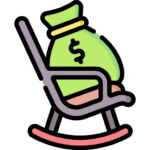 Animal
Animal
 Celebration
Celebration
 Funny
Funny
 Holiday
Holiday
Most Popular
-
 Stuffed with Gratitude (and Coffee) Thanksgiving Mug
$21.99 – $22.99
Stuffed with Gratitude (and Coffee) Thanksgiving Mug
$21.99 – $22.99
-
 Egg-stra Special Brew Easter Coffee Mug
$21.99 – $22.99
Egg-stra Special Brew Easter Coffee Mug
$21.99 – $22.99
-
 Fueled by Coffee and Easter Eggs Mug
$21.99 – $22.99
Fueled by Coffee and Easter Eggs Mug
$21.99 – $22.99
-
 Happy Easter Elegant Coffee Mug & Tea Cup
$21.99 – $22.99
Happy Easter Elegant Coffee Mug & Tea Cup
$21.99 – $22.99

-
 Location
Location
 People
People
 Sports
Sports
 Wedding
Wedding
 Other
Other
How Caffeine Affects Your Brain & Body (The Good & The Bad)

Caffeine is the world’s most widely consumed psychoactive substance. Found in coffee, tea, energy drinks, chocolate, and even some medications, it’s a staple in many people’s daily routines. While caffeine is best known for its ability to boost alertness and energy, its effects on the brain and body are complex—offering both benefits and drawbacks.
In this article, we’ll explore:
- How caffeine works in the brain
- The positive effects of caffeine
- The negative side effects of caffeine
- How much caffeine is safe?
- Tips for healthy caffeine consumption
How Caffeine Works in the Brain
Caffeine’s primary mechanism of action is blocking adenosine, a neurotransmitter that promotes relaxation and sleepiness. Normally, adenosine builds up throughout the day, making you feel tired by evening. However, when caffeine binds to adenosine receptors, it prevents this natural drowsiness, leading to increased alertness.
Additionally, caffeine stimulates the release of other neurotransmitters, including:
- Dopamine – Enhances mood and motivation
- Norepinephrine – Increases focus and reaction time
- Adrenaline – Triggers the “fight or flight” response, temporarily boosting energy
These effects explain why caffeine can make you feel more awake, focused, and even euphoric in moderate doses.
The Positive Effects of Caffeine
1. Enhanced Cognitive Function
Studies show that caffeine improves:
- Attention & focus – Helps with tasks requiring sustained concentration
- Memory – May enhance short-term recall
- Reaction time – Beneficial for athletes and drivers
A 2014 study in Neuropsychopharmacology found that caffeine improves memory consolidation, helping people retain new information better.
2. Increased Physical Performance
Caffeine is a well-known ergogenic aid, meaning it enhances athletic performance by:
- Reducing perceived exertion (exercise feels easier)
- Increasing fat oxidation (burning fat for energy)
- Improving endurance and strength output
Many athletes consume caffeine before workouts for these benefits.
3. Mood Boost & Lower Depression Risk
Moderate caffeine intake is linked to:
- Reduced risk of depression (a 2016 meta-analysis in Molecular Nutrition & Food Research found coffee drinkers had a lower depression risk)
- Lower suicide rates (possibly due to dopamine-boosting effects)
4. Metabolic Benefits & Fat Burning
Caffeine can:
- Increase metabolic rate by 3–11% (helping with weight management)
- Enhance fat breakdown by stimulating the nervous system
5. Reduced Risk of Certain Diseases
Long-term studies suggest caffeine may lower the risk of:
- Parkinson’s disease (up to 30% lower risk in coffee drinkers)
- Alzheimer’s disease (possibly due to neuroprotective effects)
- Type 2 diabetes (improved insulin sensitivity)
- Liver disease (reduced risk of cirrhosis and liver cancer)
The Negative Effects of Caffeine
While caffeine has many benefits, excessive consumption can lead to problems.
1. Anxiety & Jitters
High doses (400mg+) can overstimulate the nervous system, causing:
- Restlessness
- Nervousness
- Rapid heartbeat
- Panic attacks in sensitive individuals
2. Sleep Disruption
Caffeine’s half-life is 5-6 hours, meaning it takes that long for half of it to leave your system. Drinking coffee late in the day can:
- Delay sleep onset
- Reduce deep sleep (the most restorative phase)
- Lead to insomnia
3. Digestive Issues
Caffeine stimulates stomach acid production, which can cause:
- Heartburn
- Acid reflux
- Diarrhea (due to its laxative effect)
4. Dependence & Withdrawal
Regular caffeine users may develop tolerance, needing more to get the same effects. Quitting suddenly can cause withdrawal symptoms like:
- Headaches (due to blood vessel dilation)
- Fatigue
- Irritability
- Brain fog
These symptoms usually peak at 24-48 hours and can last up to a week.
5. Increased Blood Pressure & Heart Rate
Caffeine causes a short-term spike in blood pressure, which may be risky for people with hypertension or heart conditions.
6. Bone Density Concerns (In Excessive Amounts)
Very high caffeine intake (over 800mg/day) may interfere with calcium absorption, potentially weakening bones over time.
How Much Caffeine Is Safe?
The FDA recommends no more than 400mg of caffeine per day for most healthy adults (about 4 cups of coffee). However, sensitivity varies based on:
- Genetics (some metabolize caffeine faster)
- Body weight (smaller people feel effects more)
- Tolerance (regular users adapt)
Pregnant women should limit caffeine to 200mg/day, and children/teens should avoid high doses.
Caffeine Content in Common Drinks/Foods
| Source | Approximate Caffeine Content |
|---|---|
| Coffee (8oz) | 80-100mg |
| Espresso (1oz) | 63mg |
| Black Tea (8oz) | 40-70mg |
| Green Tea (8oz) | 20-45mg |
| Energy Drink (8oz) | 70-150mg |
| Dark Chocolate (1oz) | 12-25mg |
| Soda (12oz) | 30-50mg |
Tips for Healthy Caffeine Consumption
- Time It Right – Avoid caffeine after 2 PM to prevent sleep disruption.
- Stay Hydrated – Caffeine is a diuretic; drink extra water.
- Avoid Loading Up on Sugar – Sweetened coffee/energy drinks can lead to crashes.
- Cycle Your Intake – Take occasional breaks to reset tolerance.
- Listen to Your Body – If caffeine causes anxiety or insomnia, cut back.
Final Thoughts
Caffeine is a powerful tool for boosting energy, focus, and even long-term health—when used wisely. However, overconsumption can lead to anxiety, sleep problems, and dependence. By understanding how caffeine affects your brain and body, you can enjoy its benefits while minimizing the downsides.
If you’re sensitive to caffeine, consider alternatives like decaf coffee, herbal tea, or adaptogens (e.g., rhodiola) for energy. And remember: moderation is key!
Would you like recommendations for reducing caffeine dependence or alternatives to coffee? Let me know!
Sources:
- Harvard T.H. Chan School of Public Health
- Mayo Clinic
- National Institutes of Health (NIH)
- Neuropsychopharmacology (2014)
- Molecular Nutrition & Food Research (2016)


 Animal
Animal Celebration
Celebration Funny
Funny Holiday
Holiday Christmas Mugs
Christmas Mugs  Festive Mugs
Festive Mugs  Fourth of July Mugs
Fourth of July Mugs  Halloween Mugs
Halloween Mugs  Thanksgiving Mugs
Thanksgiving Mugs  Valentines Mugs
Valentines Mugs 




 Location
Location People
People Sports
Sports Wedding
Wedding Other
Other Bee Mugs
Bee Mugs Bird Mugs
Bird Mugs Bunny Mugs
Bunny Mugs Cat Mugs
Cat Mugs Goat Mugs
Goat Mugs Horse Mugs
Horse Mugs Lion Mugs
Lion Mugs Monkey Mugs
Monkey Mugs Moose Mugs
Moose Mugs Owl Mugs
Owl Mugs Sheep Mugs
Sheep Mugs Snail Mugs
Snail Mugs Turtle Mugs
Turtle Mugs Unicorn Mugs
Unicorn Mugs Engagement Mugs
Engagement Mugs Retirement Mugs
Retirement Mugs St Patrick’s Day Mugs
St Patrick’s Day Mugs Thank You Mugs
Thank You Mugs Boss Mugs
Boss Mugs Christmas Mugs
Christmas Mugs Colleague Mugs
Colleague Mugs Dad Mugs
Dad Mugs Grandad Mugs
Grandad Mugs Grandma Mugs
Grandma Mugs Husband Mugs
Husband Mugs Lawyer Mugs
Lawyer Mugs Nurse Mugs
Nurse Mugs Sarcastic Mugs
Sarcastic Mugs Uncle Mugs
Uncle Mugs Wife Mugs
Wife Mugs Fourth of July Mugs
Fourth of July Mugs Halloween Mugs
Halloween Mugs Thanksgiving Mugs
Thanksgiving Mugs Valentines Day Mugs
Valentines Day Mugs Amsterdam Mugs
Amsterdam Mugs Barcelona Mugs
Barcelona Mugs Berlin Mugs
Berlin Mugs Chicago Mugs
Chicago Mugs Dubai Mugs
Dubai Mugs London Mugs
London Mugs Paris Mugs
Paris Mugs Rome Mugs
Rome Mugs Sydney Mugs
Sydney Mugs Tokyo Mugs
Tokyo Mugs Toronto Mugs
Toronto Mugs Aunt Mugs
Aunt Mugs Boss Mugs
Boss Mugs Boyfriend Mugs
Boyfriend Mugs Co-Worker Mugs
Co-Worker Mugs Couples Mugs
Couples Mugs Gamer Mugs
Gamer Mugs Girlfriend Mugs
Girlfriend Mugs Nanny Mugs
Nanny Mugs Sister Mugs
Sister Mugs Teachers Mug
Teachers Mug Baseball Mugs
Baseball Mugs Fishing Mugs
Fishing Mugs Football Mugs
Football Mugs Golf Mugs
Golf Mugs Rugby Mugs
Rugby Mugs Soccer Mugs
Soccer Mugs Tennis Mugs
Tennis Mugs Best Man Mugs
Best Man Mugs Bridesmaids Mugs
Bridesmaids Mugs Father of the Bride Mugs
Father of the Bride Mugs Groomsmen Mugs
Groomsmen Mugs Matron of Honor Mugs
Matron of Honor Mugs Inspirational Mugs
Inspirational Mugs Offensive Mugs
Offensive Mugs Sexy Mugs
Sexy Mugs